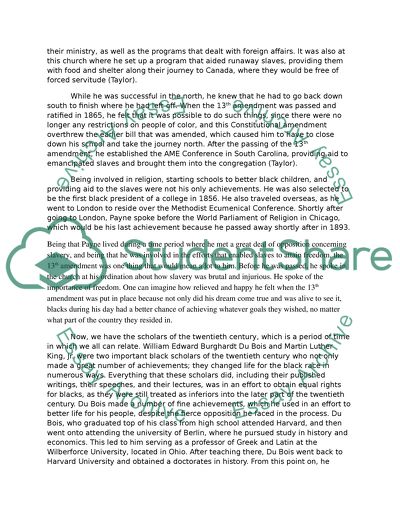Cite this document
(“Black Scholars and The Thirteenth Amendment Essay”, n.d.)
Retrieved from https://studentshare.org/miscellaneous/1518678-black-scholars-and-the-thirteenth-amendment
Retrieved from https://studentshare.org/miscellaneous/1518678-black-scholars-and-the-thirteenth-amendment
(Black Scholars and The Thirteenth Amendment Essay)
https://studentshare.org/miscellaneous/1518678-black-scholars-and-the-thirteenth-amendment.
https://studentshare.org/miscellaneous/1518678-black-scholars-and-the-thirteenth-amendment.
“Black Scholars and The Thirteenth Amendment Essay”, n.d. https://studentshare.org/miscellaneous/1518678-black-scholars-and-the-thirteenth-amendment.


